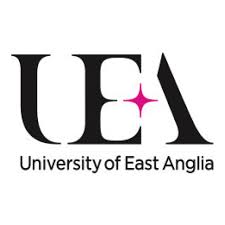How have ideas of health and illness evolved in different historical and cultural locations? How do encounters between patients and clinicians create narratives of illness and health, and how do depictions of illness, pain and disability in literature, media and culture influence these narratives? Can we find meaning in suffering?
Whether you’re a clinician planning a memoir, an intercalating medical student wanting to understand why histories of embodied experience matter in your practice, a humanities or social sciences graduate interested in health, illness and disability, or a professional interested in social prescribing and place-based healthcare, this versatile interdisciplinary MA in Medical and Health Humanities is for you.
You’ll learn about narrative medicine and the importance of story. You’ll analyse contemporary and historical representations of disability and illness, and consider the power of writing as a way of understanding experiences connected to health. Additionally, you’ll examine the role of the arts in health and wellbeing, learning about cutting edge research and practice within the applied arts and health sectors.
Our Masters in Medical and Health Humanities explores health as a holistic and culturally embedded experience. It will challenge you to think critically and philosophically about what it means to be a doctor, nurse or allied health professional, and what it means to be a patient. We will explore how ‘health’, ‘illness’ and ‘disability’ are understood, and how concepts such as ‘quality of life’, ‘pathology’ or ‘impairment’ are constructed and take shape within cultures. The programme has at its core an understanding that lived experiences of illness and disability are affected by gender, ethnicity, sexuality and class (among other intersecting identities), as well as being situated within particular geographical and historical locations. Through studying aspects of literature, media, art, philosophy and history, and their intersections with health, you will be introduced to key debates within critical medical humanities.
The programme offers exciting opportunities for creative and practice-based learning, drawing inspiration from UEA’s unique strengths in these areas, including in partnership with the world-famous Sainsbury Centre. You can choose to develop your own life-writing, fiction or artwork on health-related themes. You’ll engage with cutting-edge content, for example graphic medicine, which pushes the boundaries of current understandings around narrative medicine.
Additionally, this course will build your knowledge of inclusive health policy and practice, as well as of the burgeoning arts and health sector. You’ll learn about contemporary policy developments such as social prescribing and place-based healthcare, as well as accumulating skills and knowledge for working in the cultural or health sectors – including in role areas that link them.
You’ll be introduced to techniques for scholarship and research used in the humanities, as well as to key methods and practices from the social and health sciences. You’ll have the opportunity to hone your knowledge and skills by undertaking a final research project in the field of medical and health humanities or producing an extended creative piece with a critical commentary.
Alongside examining the intersection of the health and cultural sectors, including the new NHS Integrated Care Systems and the policy context of social prescribing, the versatility of this course means that one week you’ll be delving into global histories of medicine and the legacies of colonialism in public health, the next you’ll be critically considering representations of disabled bodies in contemporary culture, and if your interests lie in creative practice there are ample opportunities to pursue these too.

